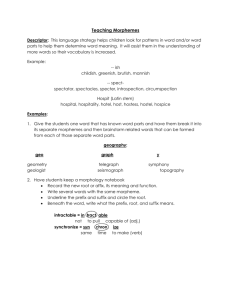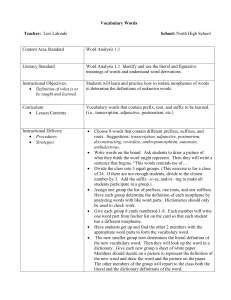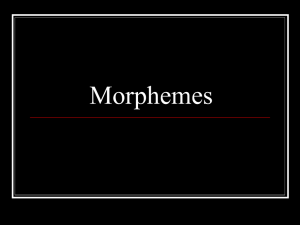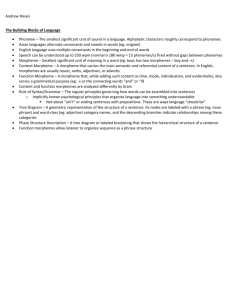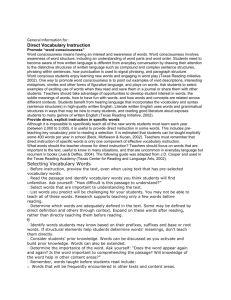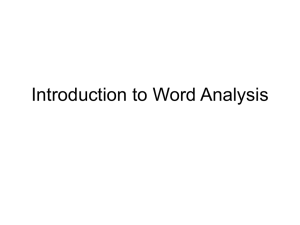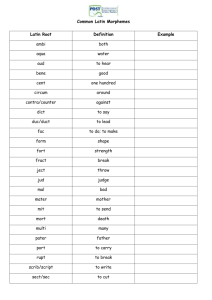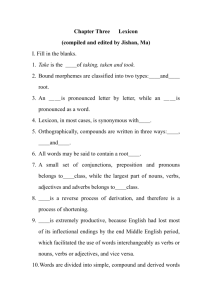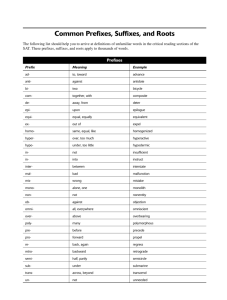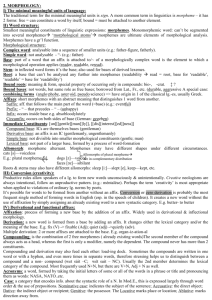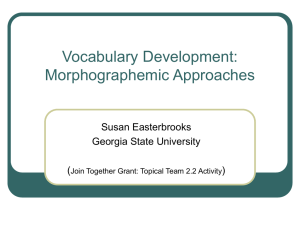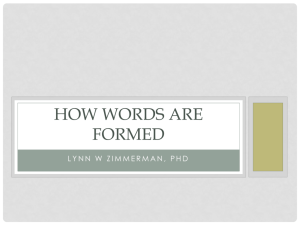Focus of the lesson: word origins, derivations, inflections
advertisement
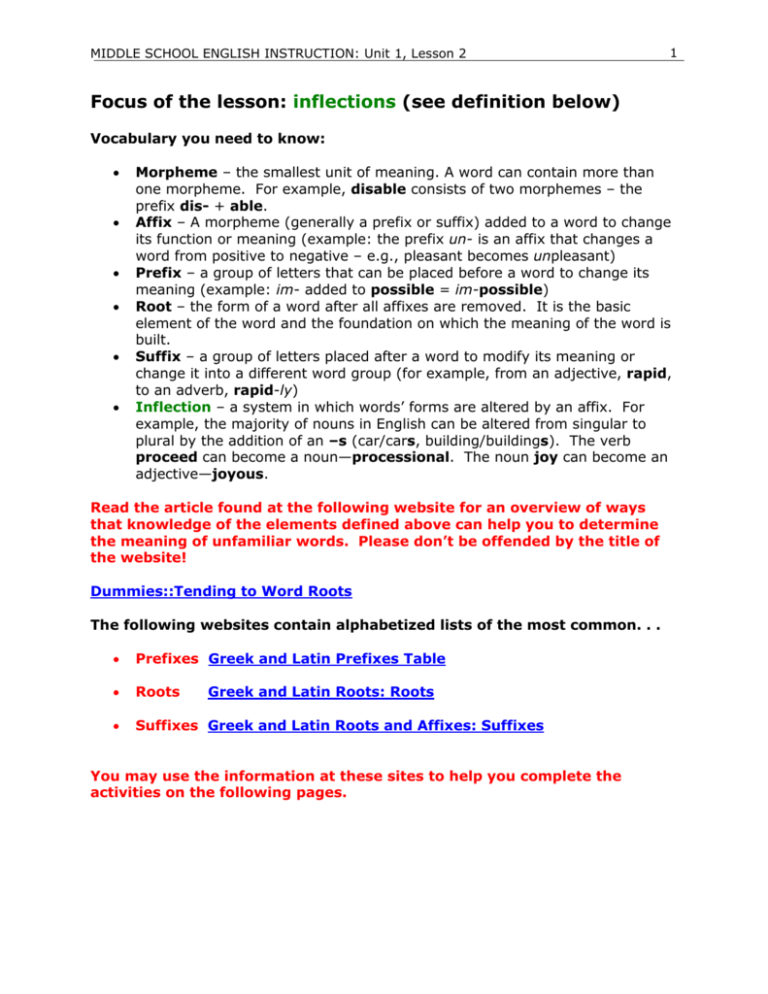
MIDDLE SCHOOL ENGLISH INSTRUCTION: Unit 1, Lesson 2 1 Focus of the lesson: inflections (see definition below) Vocabulary you need to know: Morpheme – the smallest unit of meaning. A word can contain more than one morpheme. For example, disable consists of two morphemes – the prefix dis- + able. Affix – A morpheme (generally a prefix or suffix) added to a word to change its function or meaning (example: the prefix un- is an affix that changes a word from positive to negative – e.g., pleasant becomes unpleasant) Prefix – a group of letters that can be placed before a word to change its meaning (example: im- added to possible = im-possible) Root – the form of a word after all affixes are removed. It is the basic element of the word and the foundation on which the meaning of the word is built. Suffix – a group of letters placed after a word to modify its meaning or change it into a different word group (for example, from an adjective, rapid, to an adverb, rapid-ly) Inflection – a system in which words’ forms are altered by an affix. For example, the majority of nouns in English can be altered from singular to plural by the addition of an –s (car/cars, building/buildings). The verb proceed can become a noun—processional. The noun joy can become an adjective—joyous. Read the article found at the following website for an overview of ways that knowledge of the elements defined above can help you to determine the meaning of unfamiliar words. Please don’t be offended by the title of the website! Dummies::Tending to Word Roots The following websites contain alphabetized lists of the most common. . . Prefixes Greek and Latin Prefixes Table Roots Suffixes Greek and Latin Roots and Affixes: Suffixes Greek and Latin Roots: Roots You may use the information at these sites to help you complete the activities on the following pages. 2 MIDDLE SCHOOL ENGLISH INSTRUCTION: Unit 1, Lesson 2 ACTIVITY 1-2-1 MORPHEMES ACTIVITY Directions: Use the following 45 morphemes to create at least 10 words related to language and vocabulary. No morpheme is used more than once, unless it is included more than once on the list. EXAMPLE: Mophemes: acro (high or height) geo (earth) graph (write or written) ic (like or similar to) phob (fear/fearful) y (tending to) Words that can be assembled from the morphemes: acrophobia (fear of heights), geography (something written about the earth), graphic (like writing) Remember, you can use the lists of roots, prefixes, and suffixes at the links already mentioned to look up the definition of any morpheme. MORPHEMES alpha ant ar ate ation ary bet bul cod cogn com con de di duce eme etymo extra gener hens ic ing intro ion ity ive ize ize lab logy morph multi non onym para phrase pol pol pre re rect s syl text voca WORDS YOU CREATED FROM THE MORPHEMES 1 6 2 7 3 8 4 9 5 10 16 words can actually be created from the morphemes listed above! 3 MIDDLE SCHOOL ENGLISH INSTRUCTION: Unit 1, Lesson 2 ACTIVITY 1-2-2 WORD FAMILY ACTIVITY Below is a word family for the root onym (name or word): antonym word meaning the opposite synonym anonymous word meaning the same thing not having a name pseudonym synonymous false name meaning the same as homonym a word with the same sound eponym anonymity word derived from that of a person or place namelessness ONYM DIRECTIONS: Use one of the following roots to complete a word family in the blank graphic provided. CHRON (time) CIDE (kill, cut down) NEO (new) PATER (father) PATH/PATHY (feeling, suffering) MIDDLE SCHOOL ENGLISH INSTRUCTION: Unit 1, Lesson 2 WORD FAMILY 4
